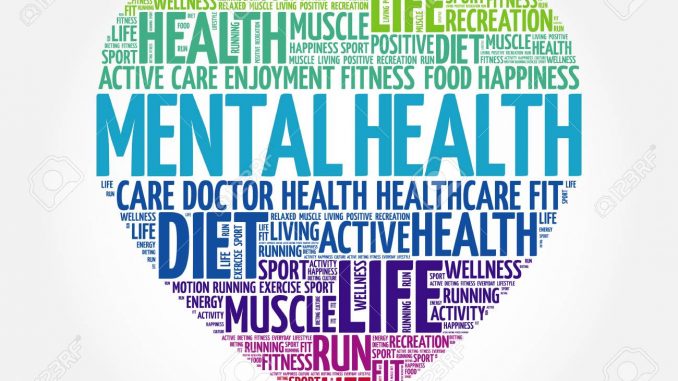
Table of Contents
What is Mental Health?
- According to World Health Organization (WHO), Mental health is defined as ‘a state of well-being in which every individual realizes his or her own potential, can cope with the normal stresses of life, can work productively and fruitfully, and is able to make a contribution to her or his community.’
- Moreover, WHO stresses that mental health is more than the absence of mental disorder or disabilities.
- Mental health also relates to the cognitive, behavioral and emotional well-being of an individual.
10 Facts about Mental Health (WHO, 2019):
|
Importance of Mental Health:
- It helps to define how we handle stress, pressures and make preferences in life
- Mental health is vital at every phase of life, from infant and adolescence through later life.
- Mental Health influences opinions, manners, and sentiments.
- Being strong emotionally can encourage effectiveness, efficiency and efficacy in activities like work, college or caregiving.
- It plays a key part in the health of interactions and permits to familiarize to alterations in life and handle with hardship.
Factors Contributing to Mental Health:
- Socio-economic factors
- Psychological factors
- Biological factors like genetic factors
- Environmental factors like rapid social change and stressful work conditions
- Cultural factors
- Unhealthy lifestyle
- Physical illness
- Nutrition
- Perinatal infections
- Exposure to environmental hazards
Common Examples of Mental Health Disorders:
Mental health disorders are basically characterized by a combination of abnormal thoughts, perceptions, emotions, behavior and relationships with others. Some of the common mental health disorders are:
- Depression
- Bipolar disorder
- Schizophrenia and other psychoses
- Dementia and other developmental disorders including autism
- Disorders due to drug and substance abuse
- Personality disorders
- Intellectual disabilities
Promoting Mental Health/Preventing Mental Health Disorders:
There are specific ways to promote mental health and prevent mental health disorders. They are:
- Early childhood interventions that focuses on interactions which will make the child feel more responsive, emotionally supportive and stimulating.
- Life skills and development programs.
- Socio-economic empowerment
- Social interactions and engagements
- Community clubs and initiatives to support elderly and vulnerable populations.
- Mental health promotional activities in schools and workplace.
- Community development programs.
- Sensitization and awareness programs on individual and human rights.
- Opportunities for personal growth and development.
WHO Response to Mental Health:
- Supporting government to promote and strengthen mental health
- Support in developing plans and policies addressing mental health.
- Research and evidence generation
- Disseminating information to promote and sensitize people on mental health
- ‘Comprehensive Mental Health Action Plan 2013-2020’ (approved by World Health Assembly 2013) which shows commitment of all the member states to take actions to improve mental health.
Key objectives of the action plan are:
- Strengthen effective leadership and governance for mental health;
- Provide comprehensive, integrated and responsive mental health and social care services in community-based settings;
- Implement strategies for promotion and prevention in mental health; and
- Strengthen information systems, evidence and research for mental health.
References and For More Information:
https://www.who.int/topics/substance_abuse/en/
https://www.who.int/mental_health/mhgap/en/
https://www.who.int/news-room/facts-in-pictures/detail/mental-health
https://www.who.int/news-room/fact-sheets/detail/mental-health-strengthening-our-response
https://www.who.int/mental_health/management/en/
https://www.who.int/en/news-room/fact-sheets/detail/mental-disorders
https://www.helpguide.org/articles/healthy-living/the-mental-health-benefits-of-exercise.htm/
https://www.landmarkhealth.org/the-importance-of-mental-health-on-overall-health/
https://blog.doctorondemand.com/why-its-important-to-care-for-your-mental-health-834c8670b889
https://www.who.int/features/factfiles/mental_health/en/
https://www.mentalhealth.gov/basics/what-is-mental-health
https://www.ncbi.nlm.nih.gov/pmc/articles/PMC1414714/
https://www.mentalhealthtips.xyz/category/importance-mental-health/
https://www.medicalnewstoday.com/articles/154543.php#common-disorders